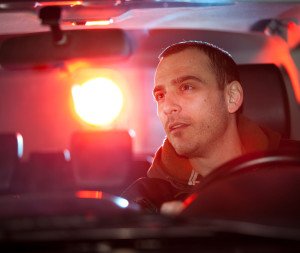
“Probable cause” is a pretty common term in legal circles, but how exactly is it applied when it comes to DUI laws? Today we answer that question and explore how probable cause can make or break your drunk driving legal defense.
Drunk Driving and Probable Cause
Probable cause is defined as “enough evidence or suspicion to reasonably believe that a person has committed a crime.” Here’s how it’s applied to DUI law in Minnesota.
1. Police need probable cause to pull you over – Police can’t just pull you over without reason to suspect that you are under the influence of alcohol. Even if they see you leave a bar, get in your car and take off down the down, so long as you follow all traffic laws, an officer cannot pull you over until they witness a violation. However, police know that when it comes down to it, it’s your word versus their word, and it’s easy to claim that a driver was swerving or that they weren’t wearing their seat belt, even if that wasn’t the case. Because of the severity of the charge, and because challenging illegal stops are one of the more common ways to fight a DUI, you should always consider hiring an attorney if you’re arrested for DUI, even if there wasn’t anything fishy about why the cop stopped you.
2. What is and isn’t probable cause? – Probable cause can be a little tricky, but it’s important to remember that a cop doesn’t need to have probable cause that you’re drunk to pull you over and eventually arrest you for a DUI, they just need probable cause that you committed an offense. Drivers roll stop signs all the time, and while that doesn’t mean they are drunk, it gives police a reason to stop and look for others factors that may indicate they are under the influence. Any traffic offense can provide police with probable cause to pull you over and then look for more signs that suggest the driver is under the influence.
Aside from traffic offenses, an accident can also be considered probable cause. Even single vehicle issues, like getting stuck in the ditch during the winter, is probable cause for an officer to look for signs of impairment, which would then be probable cause to preform field sobriety tests. Interestingly, as we’ve documented before, simply having a Whiskey Plate on your vehicle is not considered probable cause that the driver is under the influence; there still needs to be a witnessed infraction.
3. Your behavior can contribute to the formation of probable cause – As we noted above, when a police officer stops you for a traffic offense, they’ll need to observe other actions or indicators that a person may be under the influence of alcohol in order to rightfully pursue drunk driving charges. Cops will look for physical indicators – bloodshot eyes, slurred speech, the smell of alcohol, etc. – but they will also look for other signs. If you are fidgety during the interaction or you avoid eye contact, an officer may cite those actions as partial reasons for the formation of probable cause. Any good lawyer knows how to challenge these allegations, which again points to the notion that hiring a defense attorney is your best bet after a DUI. You have constitutional rights during a traffic stop, and expressing those rights should not and cannot legally be used against you in the formation of probable cause.
For example, some cops have the mentality that “If a person has nothing to hide, then just answer the question.” You don’t need to answer the question “How many drinks have you had tonight?” but some cops may view your refusal to open up (and give them the evidence they are looking for) as a reason to probe harder for probable cause. Don’t cave and give them the information that builds their case for them, contact an attorney as soon as possible.
For more information on DUI laws in Minnesota, click here.





